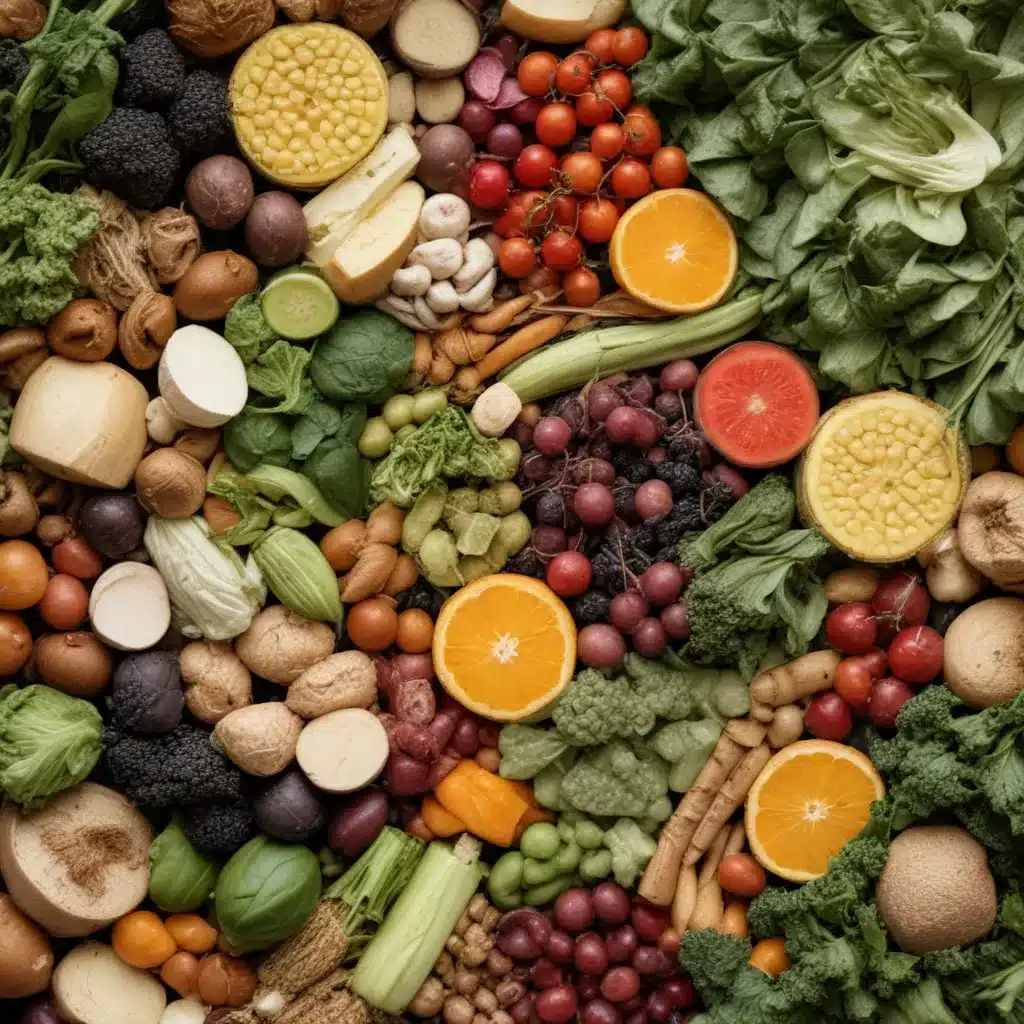
The Pressing Need for Food Waste Valorization
The world currently faces an alarming paradox – while nearly 1 billion people suffer from hunger and food insecurity, a staggering 931 million tonnes of food is wasted annually across the globe. This interconnected challenge has plagued humanity for centuries, with far-reaching consequences on social, environmental, and economic fronts.
Food waste arises from various sources, including inefficient food supply chains, consumer behaviors, and lack of coordinated efforts to recover and repurpose discarded materials. Given the growing concerns surrounding food scarcity, malnutrition, and hunger, there is a pressing need to explore innovative solutions that can recover and valorize food waste, transforming it into valuable resources.
Unveiling the Potential of Food Waste Valorization
Food waste valorization, including the process of upcycling, has emerged as a promising strategy to address the global hunger crisis. By converting food waste into value-added products, such as food formulations, farming inputs, and bioenergy, we can not only reduce waste but also positively impact food availability and security.
The process of food waste valorization involves the transformation of discarded or underutilized food materials into new, higher-value commodities. This can be achieved through various bioconversion pathways, leveraging the inherent chemical and biological properties of the waste streams.
Bioconversion Pathways for Bioenergy and Biobased Products
One of the key valorization pathways is the production of bioenergy, such as biogas and bioethanol, from food waste. Anaerobic digestion, for instance, can convert organic matter in food waste into methane-rich biogas, which can then be utilized for heat, electricity, or transportation fuel generation. This not only reduces the environmental impact of food waste but also contributes to the transition towards more sustainable energy systems.
Another promising avenue is the conversion of food waste into biobased products, which can substitute fossil-fuel-derived alternatives. These biobased products can include bioplastics, adhesives, lubricants, and even value-added chemicals. By leveraging the inherent biomass and biochemical components of food waste, innovative biorefinery approaches can unlock a diverse range of sustainable materials and chemicals.
Optimizing the Valorization Process
Achieving the full potential of food waste valorization requires the optimization of various technological, economic, and regulatory aspects. Researchers and practitioners have explored a wide range of strategies to enhance the efficiency and feasibility of food waste bioconversion, including:
-
Improved Feedstock Characterization: Developing a comprehensive understanding of the chemical composition, nutrient profiles, and contaminant levels of different food waste streams is crucial for designing appropriate valorization pathways.
-
Advanced Pretreatment Techniques: Implementing advanced pretreatment methods, such as thermal, chemical, or enzymatic processes, can improve the accessibility and convertibility of the waste materials, leading to enhanced conversion yields and product quality.
-
Process Intensification and Integration: Integrating various valorization processes, such as anaerobic digestion, fermentation, and extraction, can create synergies and improve the overall efficiency of the system, ultimately enhancing the economic and environmental viability of the approach.
-
Holistic Life Cycle Assessment: Conducting rigorous life cycle assessments to evaluate the environmental, social, and economic impacts of food waste valorization can inform decision-making and guide the development of sustainable, circular value chains.
-
Supportive Policy and Regulatory Frameworks: Implementing favorable policies, incentives, and regulatory frameworks can catalyze the widespread adoption of food waste valorization technologies and business models, driving the transition towards a more circular and resilient food system.
Empowering Communities through Food Waste Valorization
The benefits of food waste valorization extend beyond just environmental and economic impacts. By engaging local communities in the valorization process, we can unlock a range of social and developmental co-benefits, including:
-
Enhanced Food Security: Transforming food waste into nutrient-rich food ingredients, animal feed, or biofertilizers can directly contribute to improving food availability and accessibility within local communities.
-
Livelihood Opportunities: The valorization of food waste can create new employment opportunities and income-generating activities, particularly for marginalized communities, empowering them to become active participants in the circular economy.
-
Capacity Building and Knowledge Transfer: Implementing food waste valorization projects can serve as platforms for knowledge exchange, skills development, and technical capacity building within local communities, fostering long-term resilience and sustainability.
-
Strengthened Community Engagement: Collaborative efforts to valorize food waste can promote community ownership, foster local partnerships, and enhance the overall social cohesion within the targeted areas.
Aligning with Global Sustainability Initiatives
The valorization of food waste aligns closely with several Sustainable Development Goals (SDGs) outlined by the United Nations, including:
- SDG 2: Zero Hunger: By recovering and repurposing food waste, valorization initiatives can contribute to increasing food availability and accessibility, thereby supporting the achievement of zero hunger.
- SDG 7: Affordable and Clean Energy: The production of bioenergy from food waste can enhance access to sustainable and affordable energy sources, particularly in underserved communities.
- SDG 12: Responsible Consumption and Production: Food waste valorization embodies the principles of a circular economy, promoting responsible and sustainable consumption and production patterns.
- SDG 13: Climate Action: Diverting food waste from landfills and converting it into valuable products can significantly reduce greenhouse gas emissions and mitigate the impacts of climate change.
Towards a Sustainable and Resilient Food System
The valorization of food waste represents a critical pathway for transitioning towards a more sustainable and resilient global food system. By harnessing the inherent value within food waste streams, we can not only address the pressing challenge of hunger and food insecurity but also contribute to the development of a circular economy that fosters environmental, social, and economic prosperity.
Through collaborative efforts, innovative technological solutions, and supportive policy frameworks, we can empower communities to become active participants in the valorization process, unlocking a future where food waste is transformed into valuable resources, creating a more sustainable and equitable world for all. To learn more about the Joint Action for Water initiative and its commitment to sustainable water and sanitation solutions, please visit https://jointactionforwater.org/.

